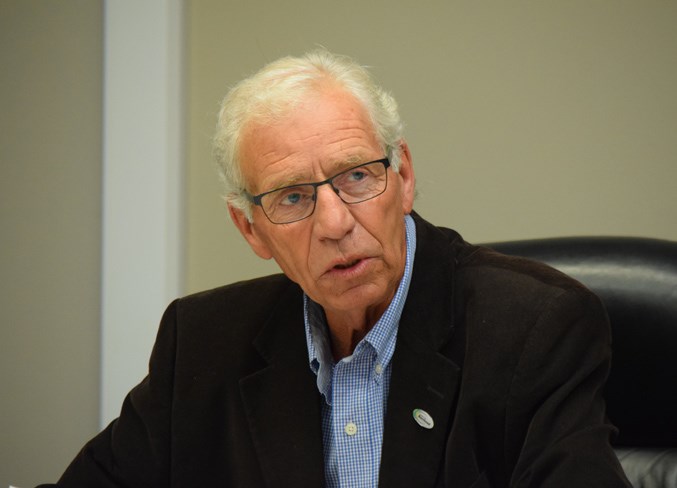The County of Barrhead has been selected as one of the sites for a three-year pilot program to help reduce the amount of agricultural plastic that ends up in Alberta landfills.
That is what county manager Debbie Oyarzun stated on Sept. 3 to councillors as part of her regular report.
Last winter, the then -— NDP government approved $1,000,000 in funding for the Agricultural Plastics Recycling Group’s (APRG) pilot program to recycle grain bags and twine.
The Agricultural Plastics Recycling Group has 20 members, including the Alberta Beef Producers (ABP), Alberta Barley, Alberta Cattle Feeders’ Association, the Alberta Federation of Agriculture, and Alberta Milk.
APRG will administer the program through the ABP and it will be carried out by Cleanfarms, a national organization that collects pesticide containers across the country. Alberta Beef Producers (ABP) is the democratic and representative organization that speaks and works on behalf of close to 18,000 cattle and beef producers in Alberta.
The County of Barrhead along with its partners, Westlock County, Westlock Regional Waste Management Commission, Woodlands County, the Municipal District of Lesser Slave River and Neeralta Manufacturing
Inc. were one of more than 50 groups vying to be one of 20 sites.
“The project itself, its goal is to be collecting material by Oct.1,” Oyarzun said, noting the County of Barrhead is the unit of authority.
She added that although the county is taking the lead there is little to no cost to the municipality.
“We agreed that our agricultural service department will help with pest inspection and control,” she said, adding the Westlock’s equivalent will do the same in its area.
Oyarzun said Neeralta Manufacturing will collect the material that will be picked up by Cleanfarms and sent to a recycling facility in southern Alberta.
“They will be paid by tonnage,” she said.
Coun. Walter Walter Preugschas asked how producers would collect and drop off the materials.
Oyarzun said it would be similar to how people collect household waste recyclables to bring to a transfer station.
Farmers would first have to clean grain bags, roll them up and put them into another bag, the same for twine and then either drop it off at Neeralta or the Westlock Waste Management Commission.
Coun. Darrell Troock asked how “clean” would the bags and twine have to be.
Oyarzun didn’t know the answer, noting Cleanfarms have yet to release specifics on the program, as the final agreements have not been signed.
Coun. Dennis Nanninga said depending on how stringent the cleaning requirements are it might be difficult for producers to meet.
Coun. Marvin Schatz agreed.
“I can see farmers getting frustrated if they take stuff down there and are told no, you have to go home and pressure wash it first,” he said.
A 2007 study by the Recycling Council of Alberta said the “use of plastic in agriculture is ubiquitous” in the province. It estimated that 4,300 to 5,000 tonnes of polypropylene (twine and cord) were sold in Alberta in that year, along with 3,000 to 4,000 tonnes of polyethylene material (silage and grain bags). A second study conducted in 2013 estimated Alberta farms used 3,300 to 6,400 tonnes of grain and silage bags yearly, along with 2,000 to 6,000 tonnes of twine.
A 2012 survey of producers found about half of them were burning agricultural plastics and that “sending plastics to a landfill was also a common method” of disposing of them. More than 80 per cent of those surveyed said they wanted to be able to recycle those plastics but three-quarters said it was difficult or very difficult to do so.


